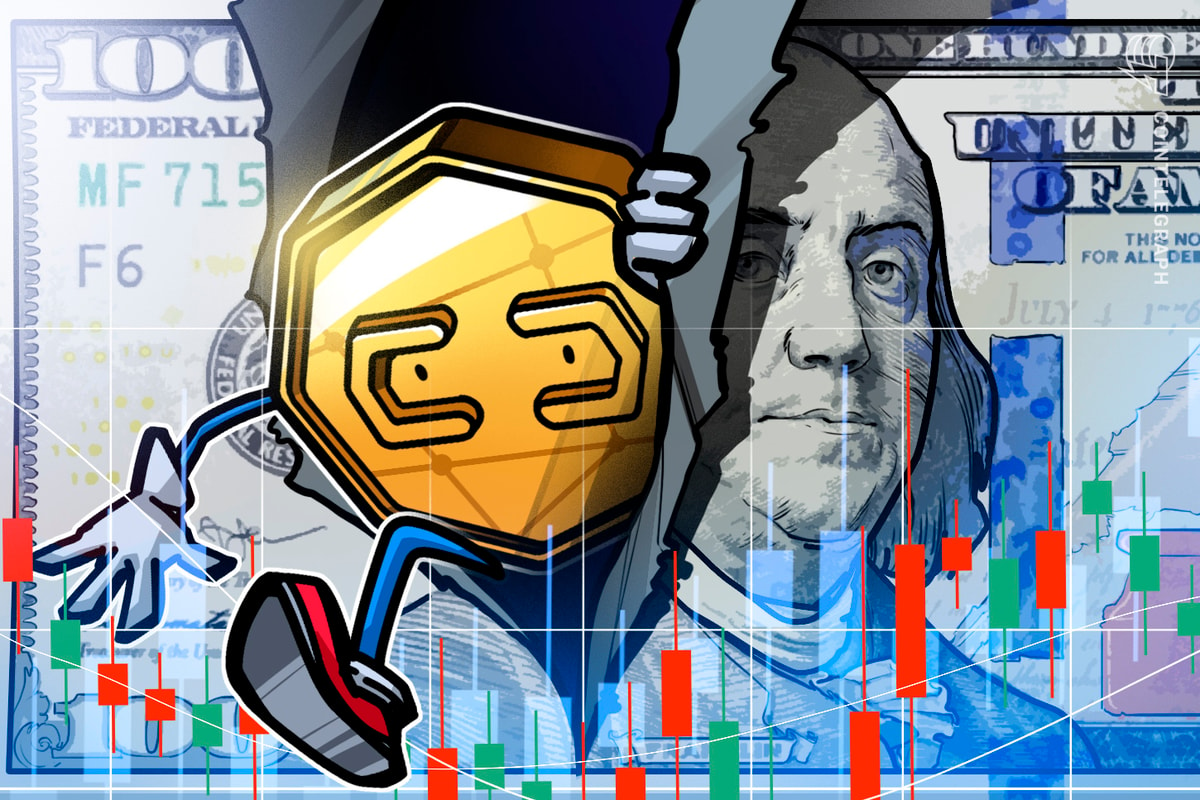The SEC chair previously indicated that all cryptocurrencies apart from BTC are securities.
In a recently unearthed video from a 2018 crypto-themed event hosted by Bloomberg and Fidelity, Gary Gensler, the current chairman of the United States Securities and Exchange Commission (SEC), made statements that contradict his current position on digital assets regulations in the country.
The video, which started circulating on Twitter on June 12, shows Gensler addressing institutional investors at the Massachusetts Institute of Technology, where he worked as a professor before joining the SEC in 2021 after he was nominated by President Joe Biden, asserting that four major cryptocurrencies, Bitcoin (BTC), Ethereum (Ether), Litecoin (LTC) and Bitcoin Cash (BCH) are not securities.
At the time, the SEC chairman highlighted that these four digital assets accounted for approximately 75% of the market, emphasizing their exclusion from the securities category.
“Over 70% of the crypto market is Bitcoin, Ethereum, Litecoin, and Bitcoin Cash. Why did I name those four? They’re not security. Three-quarters of this [digital asset] market are not securities,” the SEC chair said in the video.
Chair Gensler in 2018 at a Bloomberg conference in NYC:
“Bitcoin. Ether. Litecoin. Bitcoin Cash. Why did I name those four? They’re not securities.”
What’s Goldman Gary going to say about this one? Deep fake? pic.twitter.com/p7DJlYkJIt
— Ryan Selkis
(@twobitidiot) June 12, 2023
Gensler’s 2018 Comments Come from a Personal View
Gensler’s remarks in the video have sparked controversy, as the comments contradict his recent suggestions that most cryptocurrencies, aside from BTC, may be considered securities.
Although legal experts such as crypto lawyer Preston Byrne have clarified that Gensler’s 2018 comments were made in a personal capacity, the remarks have raised concerns within the crypto industry.
Critics argue that his lack of clear guidance on the legality of specific tokens before initiating a “regulation by enforcement strategy” without a clear path for compliance has created uncertainty and frustration among the crypto community.
Last week, the market regulator labeled 19 more crypto assets as securities, including Solana (SOL), Polygon (MATIC), Flow (FLOW), and Near (NEAR), making it a total of 68 digital currencies the Commission has identified as security under Gensler’s leadership. However, none of the crypto assets mentioned in the 2018 video have yet made it to the SEC’s list.
Is Ethereum a Security or Not?
The SEC chair previously indicated that all cryptocurrencies apart from BTC are securities. On that note, the Commission has sued many crypto companies, including Coinbase, Ripple Labs, Binance, Gemini, and Genesis, for violating federal securities laws by selling unregistered securities in America.
In April, Patrick McHenry, chairman of the US House Financial Services Committee, requested that Gensler provide a clear answer as to whether Ethereum is a security. Still, the SEC chair failed to answer the question definitively.
That same month, another video of Gensler from 2019 emerged before his time at the SEC. In the video, he praised the smart contract platform Algorand for its underlying technology before declaring its native token ALGO security in a lawsuit against the crypto exchange Bittrex.
Earlier in March, the SEC chairman disclosed that Ether could be a security after the Ethereum Merge, referring to the protocol’s transmission to a proof-of-stake (PoS) consensus mechanism last year.
At the time, Gensler argued that all PoS tokens could be classified as a security under the Howey Test, used to measure assets that meet the security requirements.
According to him, users’ profits from staking on such protocols indicate that the tokens are securities and should be regulated under the SEC purview.
“Whatever they’re promoting and putting into a protocol, and locking up their tokens in a protocol, a protocol that’s often a small group of entrepreneurs and developers are developing, I would just suggest that each of these token operators seek to come into compliance, and the same with the intermediaries,” he said.

Chimamanda is a crypto enthusiast and experienced writer focusing on the dynamic world of cryptocurrencies. She joined the industry in 2019 and has since developed an interest in the emerging economy. She combines her passion for blockchain technology with her love for travel and food, bringing a fresh and engaging perspective to her work.
Read More: www.coinspeaker.com








 Bitcoin
Bitcoin  Ethereum
Ethereum  Tether
Tether  XRP
XRP  Solana
Solana  USDC
USDC  Dogecoin
Dogecoin  Cardano
Cardano  TRON
TRON  Lido Staked Ether
Lido Staked Ether  Wrapped Bitcoin
Wrapped Bitcoin  Sui
Sui  Hyperliquid
Hyperliquid  Wrapped stETH
Wrapped stETH  Chainlink
Chainlink  Avalanche
Avalanche  Stellar
Stellar  Shiba Inu
Shiba Inu  Bitcoin Cash
Bitcoin Cash  Hedera
Hedera  LEO Token
LEO Token  Toncoin
Toncoin  Litecoin
Litecoin  WETH
WETH  Monero
Monero  Polkadot
Polkadot  USDS
USDS  Bitget Token
Bitget Token  Wrapped eETH
Wrapped eETH  Binance Bridged USDT (BNB Smart Chain)
Binance Bridged USDT (BNB Smart Chain)  Pepe
Pepe  Pi Network
Pi Network  Ethena USDe
Ethena USDe  WhiteBIT Coin
WhiteBIT Coin  Coinbase Wrapped BTC
Coinbase Wrapped BTC  Aave
Aave  Bittensor
Bittensor  Dai
Dai  Uniswap
Uniswap  NEAR Protocol
NEAR Protocol  Aptos
Aptos  Jito Staked SOL
Jito Staked SOL  OKB
OKB  Ondo
Ondo  BlackRock USD Institutional Digital Liquidity Fund
BlackRock USD Institutional Digital Liquidity Fund  Cronos
Cronos  Ethereum Classic
Ethereum Classic  Internet Computer
Internet Computer